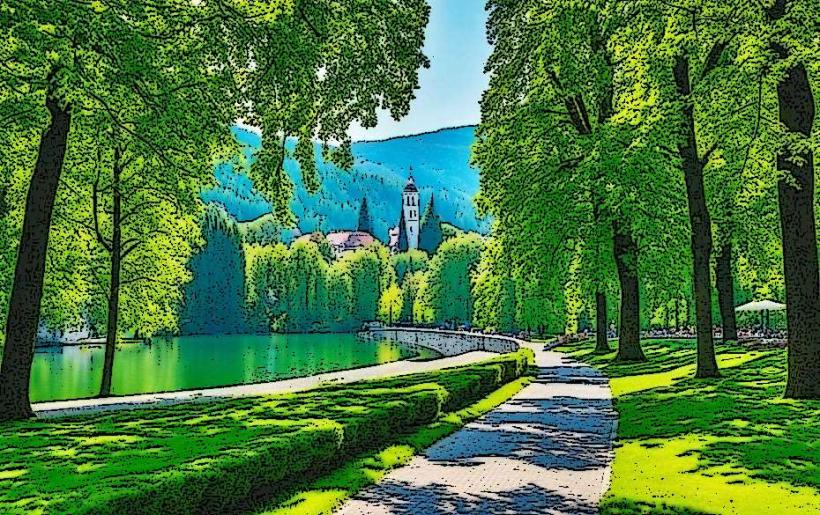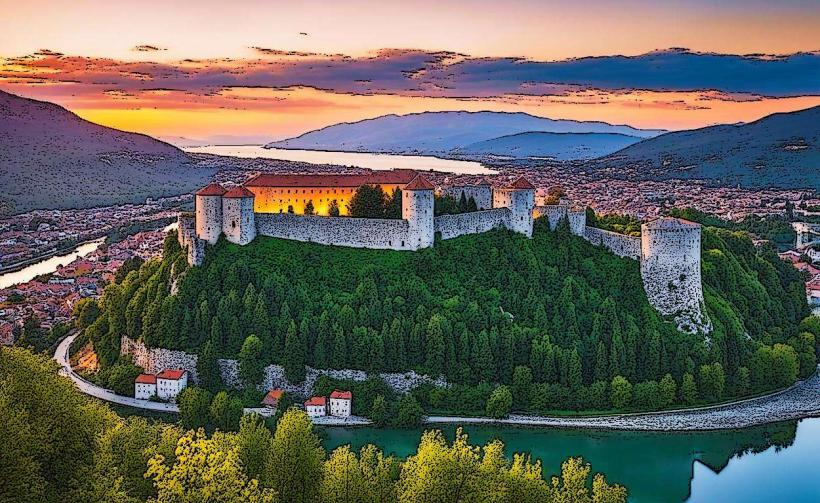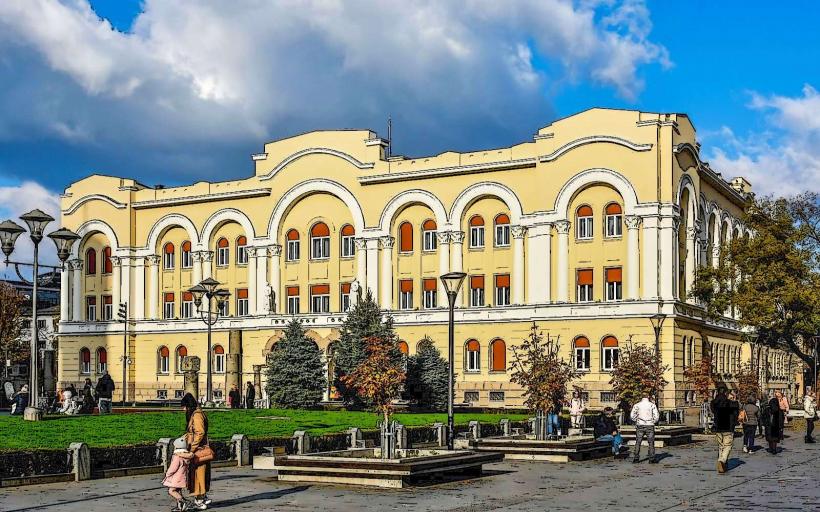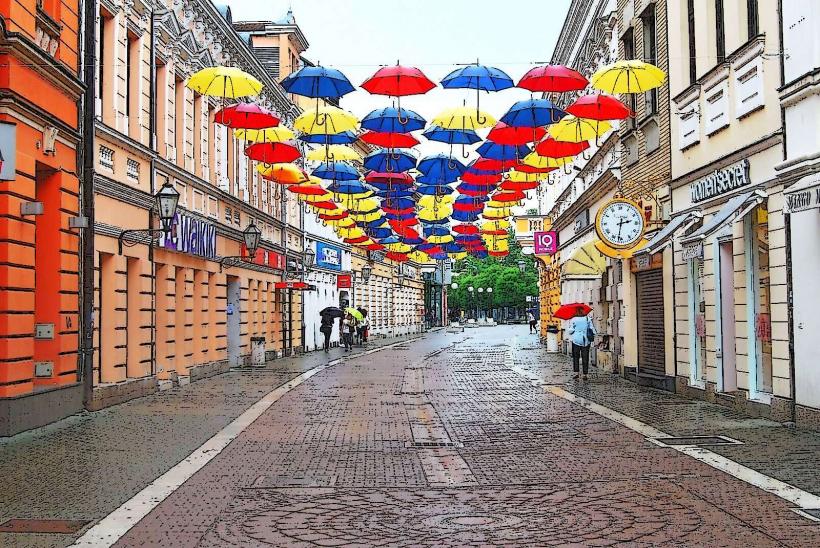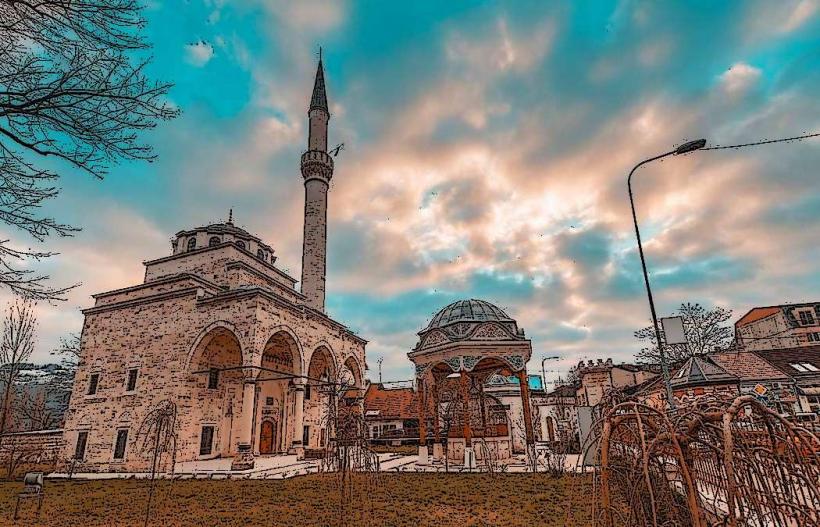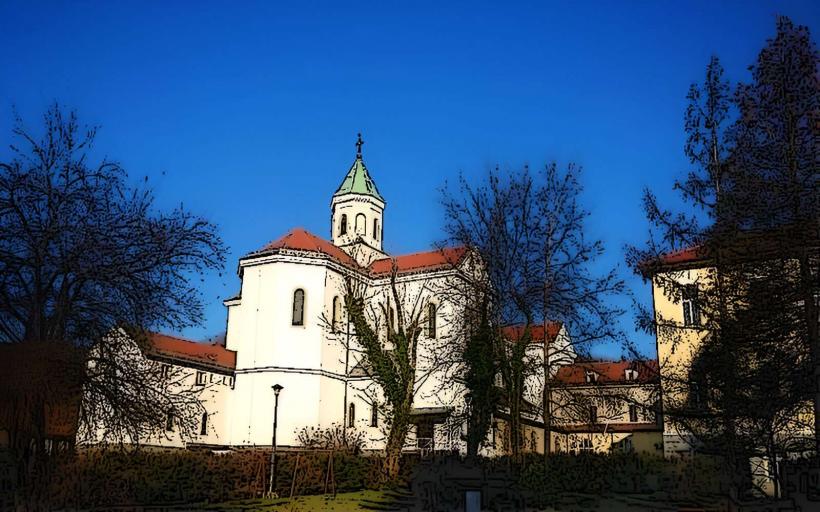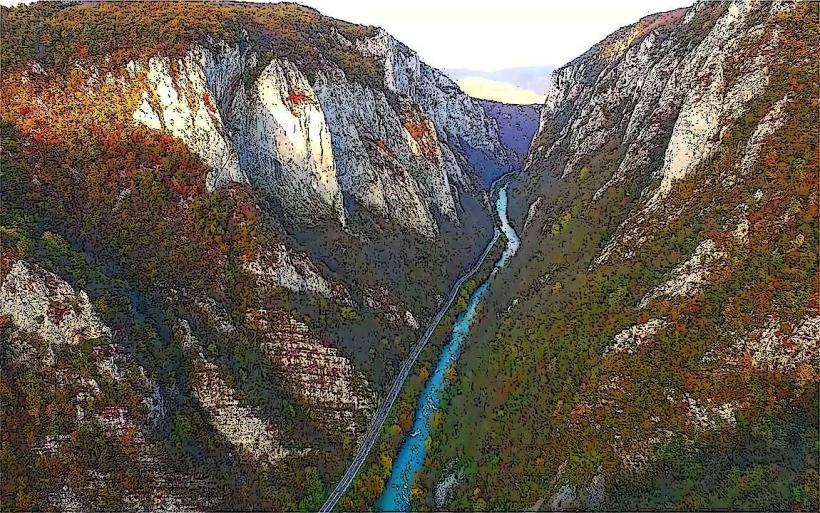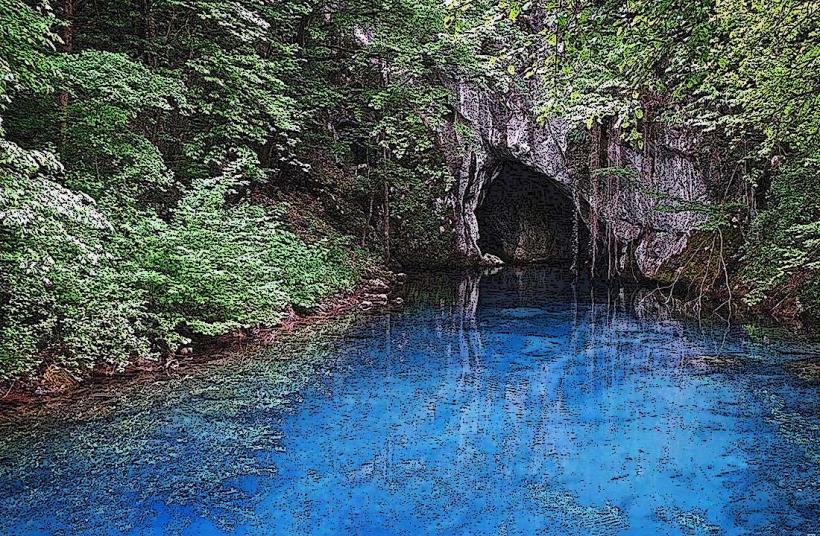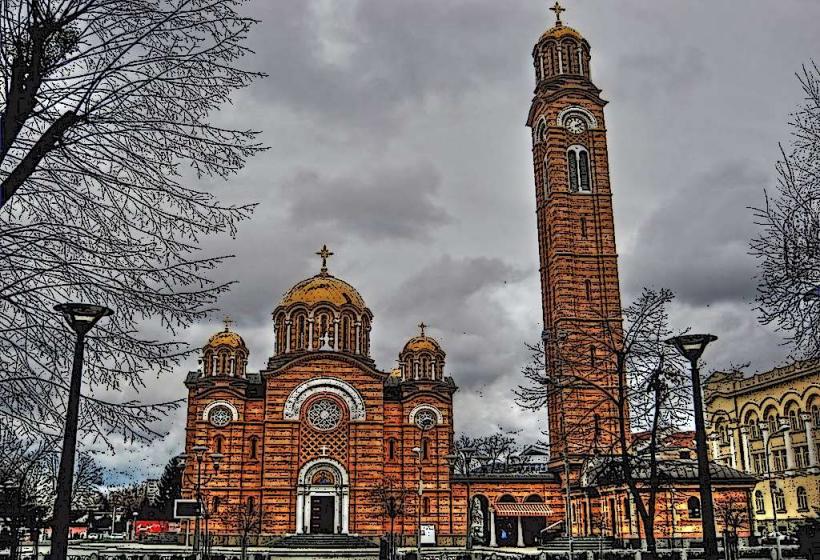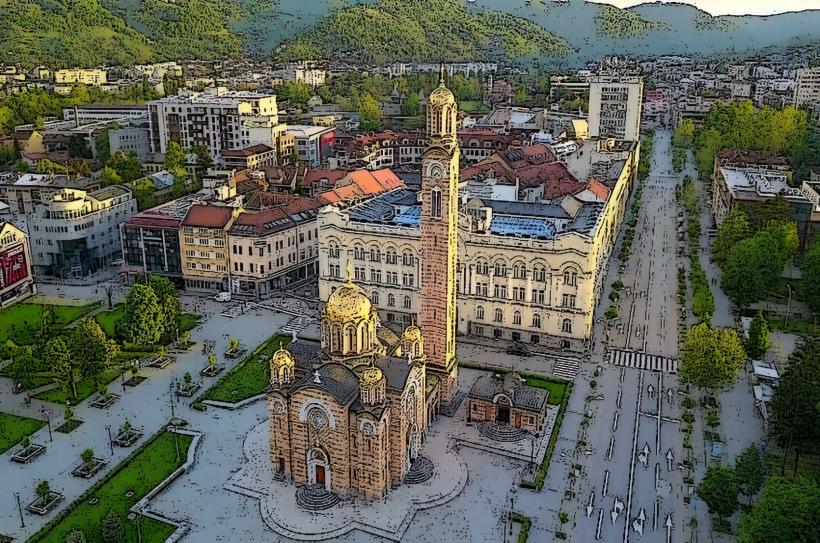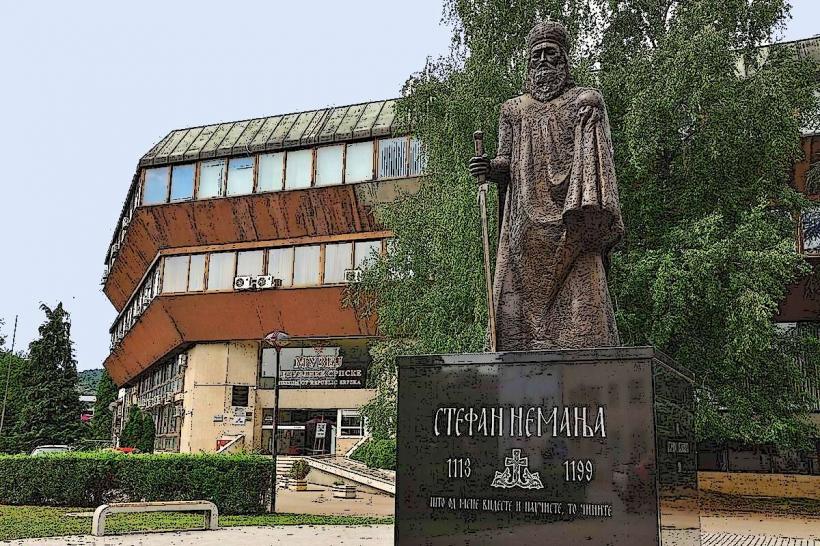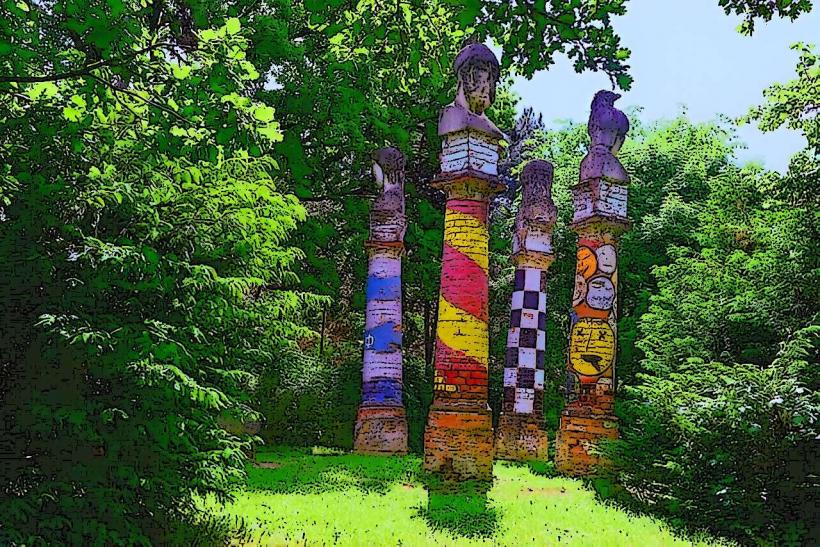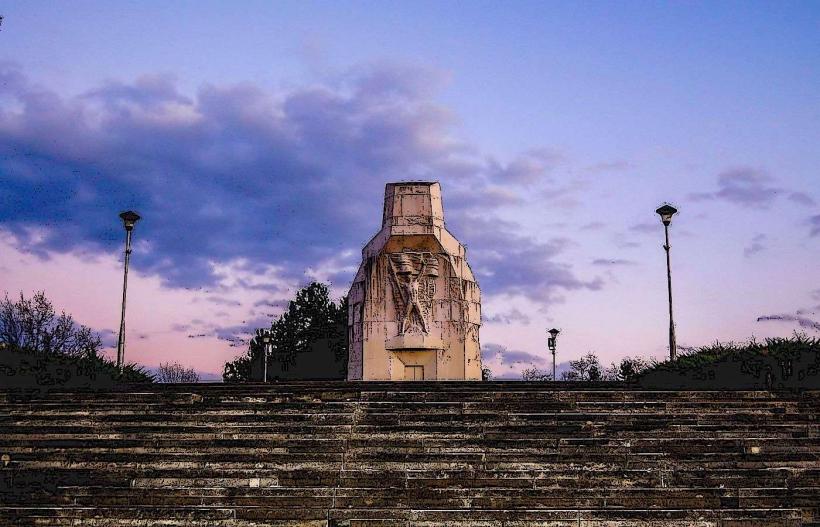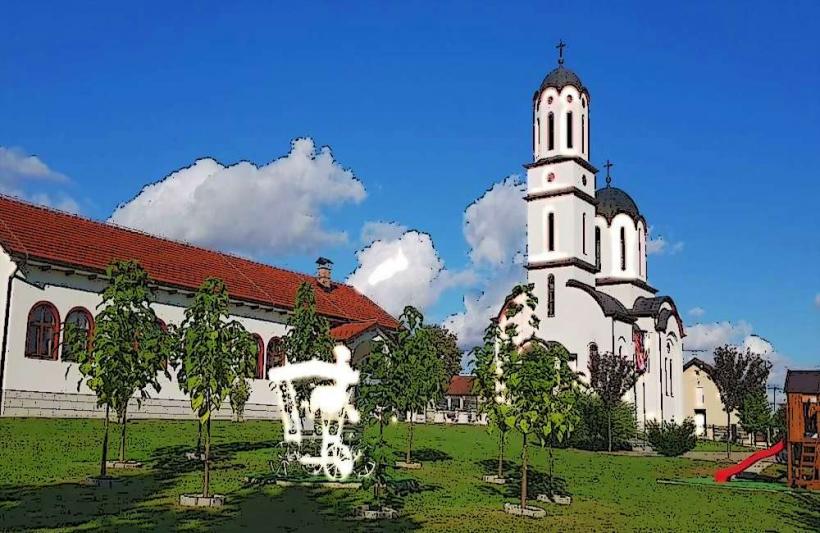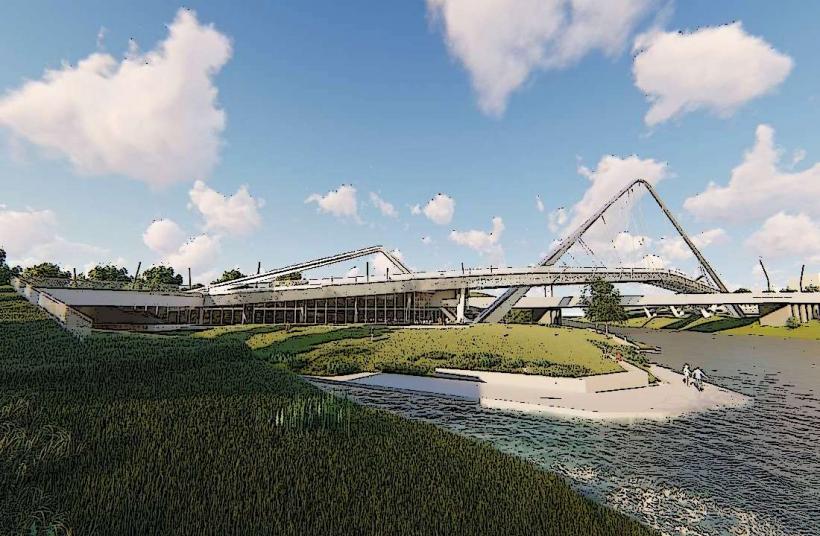Information
Landmark: Banja Luka CathedralCity: Banja Luka
Country: Bosnia and Herzegovina
Continent: Europe
Banja Luka Cathedral, Banja Luka, Bosnia and Herzegovina, Europe
The Cathedral of Saint Bonaventure (Katedrala svetog Bonaventure) is the seat of the Roman Catholic Diocese of Banja Luka. It is a distinctive modernist landmark, significantly differing in architectural style from the city's traditional Neo-Renaissance and Byzantine structures.
Visual Characteristics
The cathedral is one of the most unique modernist religious buildings in the Balkans. The main structure is a tent-shaped (pyramidal) concrete building, symbolizing a nomadic tent or the "tent of God among people." The interior is minimalist with expansive stained-glass windows. Adjacent to the main hall is a separate, futuristic bell tower that reaches a height of 42 meters, featuring a spiral external staircase and a clock.
Location & Access Logistics
Address: Kralja Petra I Karađorđevića 80, Banja Luka 78000.
Access: Located on the main city boulevard, approximately 400 meters North of the central Petar Kočić Park.
Transit: All central bus lines passing through the city core stop within 100 meters of the cathedral.
Parking: Limited parking is available in the church courtyard; public street parking (Zone 1) is available on the surrounding streets.
Historical & Ecological Origin
The original cathedral on this site, built in 1887, was completely destroyed by the devastating 1969 Banja Luka earthquake. The current structure was built between 1972 and 1973, designed to be highly resistant to seismic activity. It was partially damaged during the 1990s conflict but underwent a total restoration in 2001. The design intentionally moved away from historicism to reflect the resilience of the community post-natural disaster.
Key Highlights & Activities
Modernist Architecture: A primary site for students and enthusiasts of 20th-century brutalist and functionalist architecture.
Stained Glass: The interior features contemporary glass art that illuminates the concrete space with vibrant colors during the morning hours.
The Bell Tower: The tower is a standalone landmark often used as a navigational point in the northern city center.
Infrastructure & Amenities
The cathedral is part of a larger complex that includes the Bishop's Residence and a Catholic school. The grounds are paved and accessible to those with mobility issues. Public restrooms are available for parishioners and visitors during opening hours. 4G/5G cellular coverage is excellent.
Best Time to Visit
The cathedral is open daily for prayer and visitors, typically from 08:00 to 18:00. To appreciate the stained glass, visit between 09:00 and 11:00 when the sun is at an optimal angle. It is a quiet alternative to the more crowded Orthodox Cathedral of Christ the Saviour located further south.
Facts & Legends
The "tent" design was chosen specifically by the architects to honor the fact that after the 1969 earthquake, the local Catholic community held mass in a temporary tent on the ruins for several years. This temporary shelter became the permanent inspiration for the current concrete form.
Nearby Landmarks
National Assembly of Republika Srpska – 0.2km North
National Theater of Republika Srpska – 0.3km East
Banski Dvor – 0.4km South
Mladen Stojanović Park – 0.8km North
Cathedral of Christ the Saviour – 0.45km South

